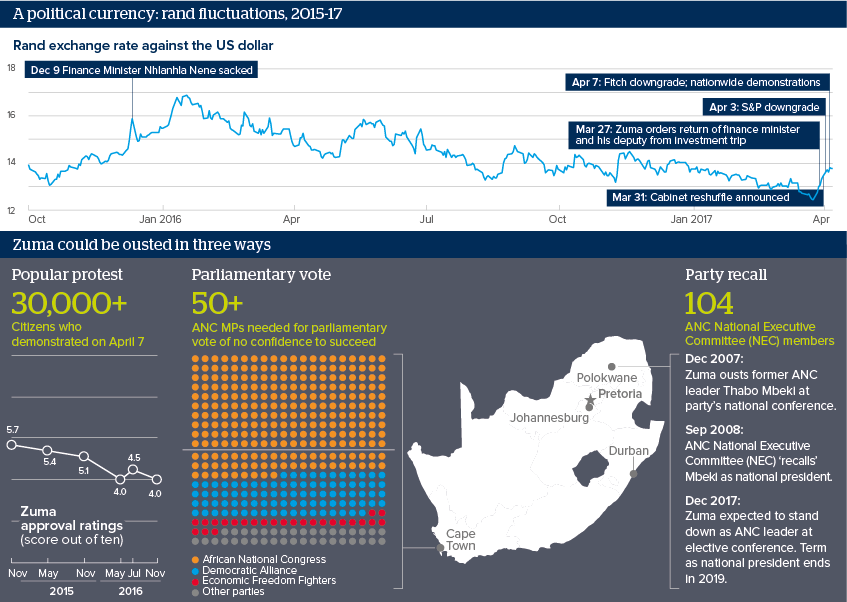Unseating South Africa’s Zuma will not prove easy
Narratives of ousting the president underestimate the complexity of the process
Source: Bloomberg, IPSOS South Africa, Oxford Analytica
Outlook
South Africa's credit rating has been downgraded to junk status by both Standard & Poor’s (April 3) and Fitch (April 7). Both rating agencies cited the decision by President Jacob Zuma to fire Pravin Gordhan as minister of finance on March 31 in a cabinet reshuffle as a key reason for their latest reviews.
On April 18, South Africa’s opposition parties are scheduled to table a motion of no confidence in the president in parliament in Cape Town. Despite facing calls to resign from two of the ANC’s alliance partners -- the South African Communist Party (SACP) and the Congress of South African Trade Unions (COSATU) -- Zuma has thus far resisted calls to step down.
Three options present themselves to Zuma’s opponents: a “recall” of the president by the ANC National Executive Committee (NEC); parliamentary pressure; and popular protest. All three, however, present significant obstacles.
Impacts
- The chances of a formal oppositional electoral alliance prior to the 2019 election have improved.
- The ANC vote in key metropolitan areas will reduce further in subsequent polls.
- Shelved nuclear plans are likely to be reintroduced, prompting renewed ratings agency concerns over the fiscal ceiling.
See also
- South Africa's ANC factionalisation will hasten - Jul 28, 2017
- South Africa’s Zuma will limp on as ANC splits further - May 31, 2017
- South Africa’s Zuma could face early exit - Apr 3, 2017
- More graphic analysis
